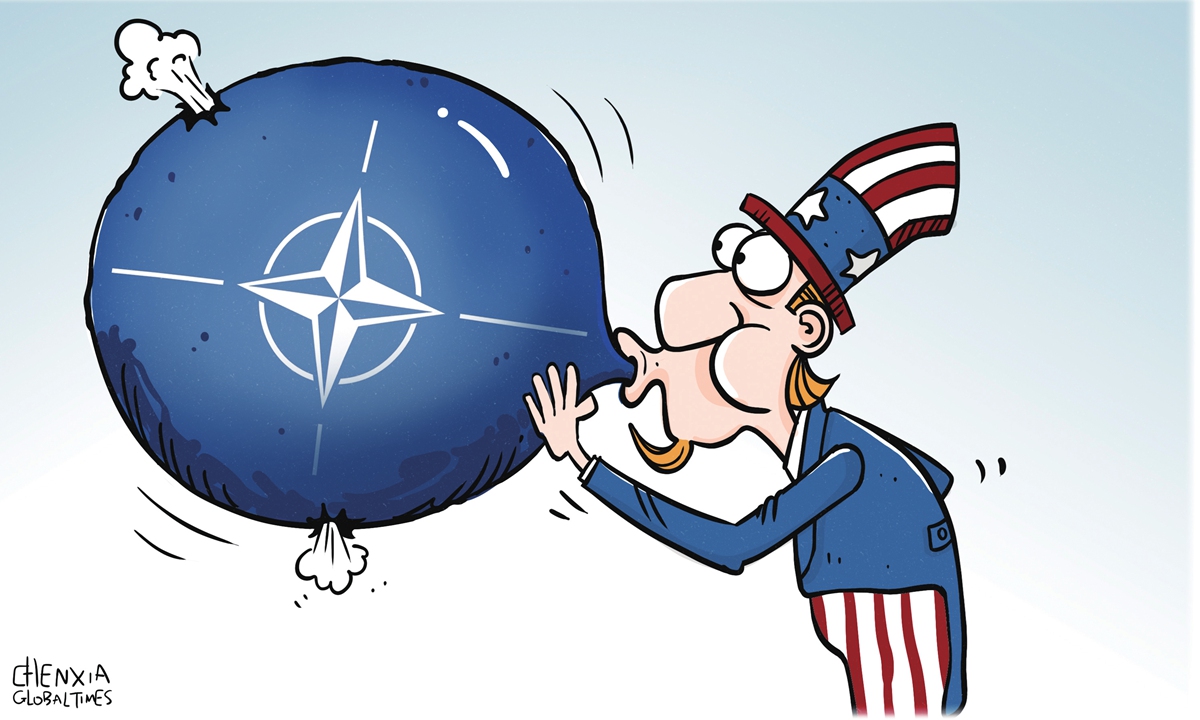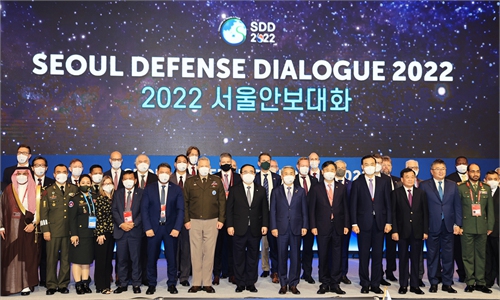NATO accepts S.Korea’s request to set up mission; closer security alliance ‘risks exacerbating regional division’

NATO Illustration: Chen Xia/Global Times
In a step further underpinning the security alliance between NATO and South Korea, NATO has announced it has accepted Seoul's request to designate its embassy in Belgium as its diplomatic mission to NATO, a move that experts said would undoubtedly exacerbate regional confrontation and division.
Describing it as "an important step in NATO's strong partnership with the Republic of Korea," NATO pledged to strengthen dialogue and cooperation with new and existing partners in the Indo-Pacific to tackle cross-regional challenges.
The announcement came after South Korean President Yoon Suk-yeol, for the first time in history, attended a NATO summit in Madrid in June, to express the country's interest in underpinning a security alliance with the US' Western allies.
South Korea had previous engagement with NATO in May when it participated in the NATO Cooperative Cyber Defense Center of Excellence, the first Asian country to join the group. And this time, it is undoubtedly an upgraded version of cooperation between the two sides, experts noted.
South Korea's strengthened partnership with NATO is primarily targeted at the Korean Peninsula as tensions have risen with its northern neighbor, Da Zhigang, director of the Institute of Northeast Asian Studies at the Heilongjiang Provincial Academy of Social Sciences, told the Global Times on Wednesday.
One day after Pyongyang conducted a ballistic missile launch on Sunday, South Korea and the US conducted their first combined naval drill near the Korean Peninsula in five years on Monday, involving the participation of the nuclear-powered USS Ronald Reagan aircraft carrier, media reports said.
By ganging up with the US, Seoul is aiming to improve its security strength and gradually form a broader deterrence to its northern neighbor, while also seeking a more favorable position in great power games, Zha said.
What's more, with escalated tensions in Ukraine and turbulence in geopolitical landscapes, the current conservative party in power sees the need to lean more toward the US, the expert added.
However, choosing to introduce the US-led NATO into its regional security issues would bring even greater risks and instabilities to the Indo-Pacific and Northeast Asia, observers said, warning that guiding the way for NATO at the expense of diminished diplomatic autonomy will not serve Seoul's economic and security interests in the long run, and will no doubt exacerbate regional confrontation and division.

